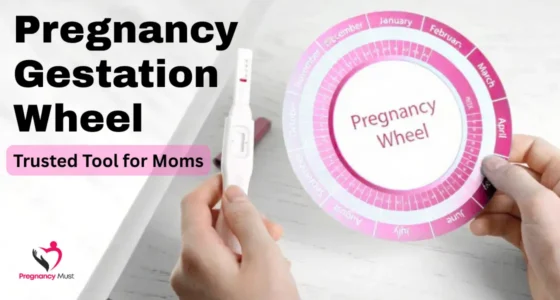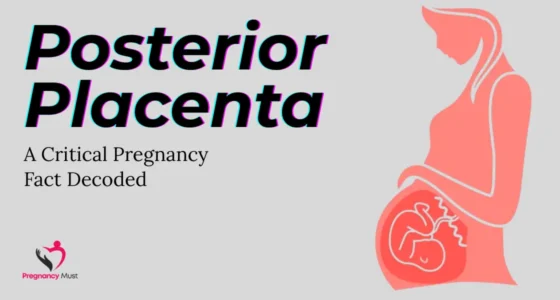The miscarriage risk calculator is a valuable tool for women seeking insights into their pregnancy risks. The knowledge about the likelihood of a miscarriage at an early stage of pregnancy can help patients control their hopes and expectations, manage the possible problems, and bring them peace. This article will guide you through how the miscarriage risk calculator works, how it considers various risk factors, and the importance of knowing your risk to ensure a healthy pregnancy.
Table of Contents
- What is a Miscarriage Risk Calculator?
- How the Miscarriage Risk Calculator Works
- Why You Need to Know Your Risk of Miscarriage
- Things That Influence the Risk of the Miscarriage
- The Role of a Miscarriage Risk Calculator by Week
- How Accurate is the Miscarriage Risk Calculator?
- Do Lifestyle Choices Play a Role in Miscarriage?
- FAQ Section: Miscarriage Risk Calculator
- Conclusion: Miscarriage Risk Calculator
What is a Miscarriage Risk Calculator?
A miscarriage risk calculator is an online tool designed to estimate the likelihood of miscarriage during different stages of pregnancy. It analyses many risk factors, including age, medical history, lifestyle, among others, to offer a custom risk assessment. The knowledge of the working process of a calculator can be of great importance in providing insight into your pregnancy, which can be used to make more informed decisions.
How the Miscarriage Risk Calculator Works

When using a miscarriage risk calculator by week, it takes into account your specific stage of pregnancy. The tool requires such details as:
Age
The age factor also contributes to the risk of miscarriage because women are likely to be at risk after the age of 35. This can be largely attributed to the fact that the quality and quantity of the eggs decrease as a woman grows older, thus resulting in a high probability of having chromosomal aberrations. All of these abnormalities may result in miscarriage, especially during the first trimester. Older women, moreover, have the likelihood of developing complications like fibroids or even problems with the endocrine system that can only increase the chances of miscarriage. At this stage, women need to ensure early prenatal care and observation in order to prevent exposure to possible risks.
Previous Miscarriages
The risk of miscarriage may be due to a history of miscarriage. Women who have experienced one miscarriage are at risk of developing back-to-back miscarriages, especially when there was a problem of chromosomal abnormalities or in the uterus in the previous instance. Nevertheless, the majority of women who experience one miscarriage have successful pregnancies in the future. Risk is affected by the number of miscarriages experienced previously, the cause of the miscarriage, and health in general. The repetition of some problems can be resolved by consulting with a healthcare provider to increase the likelihood of a successful pregnancy the next time.
Lifestyle Factors
The pregnancy can also be influenced by smoking, drinking alcohol, and using drugs. Smoking or taking alcohol when pregnant has increased chances of miscarriage in women as it exposes them to various things that can impair fetal growth and result in damage to the chromosomes of the baby to be born. The use of drugs, whether recreationally or prescription drugs, may also prove to be detrimental to the resolution of pregnancy. Such lifestyle habits might cause complications, which include: placental abruption, pre-term labor, and fetal restriction of growth restriction. Stopping these habits in pre-conception or at the soonest time during pregnancy is important in curbing the risk of miscarriage and the health of the mother and the baby.
Medical History
Miscarriage risks can be increased due to such conditions as diabetes, thyroid issues, or infections. Poorly managed diabetes, especially type 1 or even type 2, may influence the growth of the fetus, either causing miscarriage or birth defects. Other disorders of the thyroid, like hypothyroidism and hyperthyroidism, may affect pregnancy outcomes as well. Infections such as urinary tract infection, sexually transmitted infection, or viral infection can increase the probability of miscarrying when they are not treated. These medical conditions must be well-controlled even before pregnancy or during pregnancy by treating them with proper medical advice so that there are fewer chances of problems that may cause a miscarriage.
Family History
Certain genetic disorders also have a role to play in the chances of miscarriage. On the one hand, the probability of a miscarriage may grow because a woman has a family history of genetic disorders like chromosomal abnormalities (e.g., Down syndrome, Turner syndrome). In other situations, the risks of pregnancy loss may be caused by inherited diseases such as clotting disorders or autoimmune diseases. Couples with a familiar history of genetic problems can choose to become genetically assessed or tested, which is known as genetic counseling. This will determine their risk so that they can make well-informed choices. The risks can partly be mitigated through early screening and subsequent medical intervention, which offer the women a better chance of bringing a pregnancy to term.
By submitting this information, the calculator gives a risk number, which can help you to decide on matters concerning your health and pregnancy care.
Why You Need to Know Your Risk of Miscarriage

Knowing that you are at risk of miscarriage can enable you to engage in preventative activities or seek one of a health professional in advance to take timely action. In case the danger is significant, it can lead to additional check-ups or examinations. Nonetheless, it is necessary to keep in mind that such calculators do not guarantee; they are only an estimate.
Things That Influence the Risk of the Miscarriage
Several factors influence the miscarriage risk calculator, including:
Age and fertility Health
Advanced age above 35 is a factor that can affect fertility and also cause miscarriage. As women grow older, the quality of their eggs reduces and which increases to risk of having chromosomal abnormalities in the child. Moreover, elderly women are prone to having more complications throughout their pregnancy, e.g., hormonal disorders or reproductive organ problems. This may complicate the maintenance of a pregnancy. The fertility is also affected by age, so after age 35, women can experience such complications as lower ovarian reserve or such diagnoses as a fibroid, which can complicate a successful pregnancy. This renders professional early monitoring and intervention of women in this age bracket very important.
Past Prenatal History
You are a little bit more likely in case you have had some lost pregnancy before. The risk of having a second miscarriage is amplified when one has had one miscarriage or more, as this could be due to an underlying condition such as abnormalities to the uterus, hormone imbalance, or problems with the immune system. Mothers who have had miscarriages have a high chance of bearing successful pregnancies, but frequent pregnancy loss (three or more miscarriages) is one of the issues of concern that should be attended to by specialized medical practitioners. Physicians are able to perform tests quite frequently to determine any underlying conditions and address them to optimize chances of becoming pregnant and having a healthy pregnancy in the future. Knowing about the history of your pregnancies can assist in the planning of future treatment and management.
Chromosomal Abnormalities
Chromosomal problems are the cause of miscarriage in most cases, so it is a crucial key in risk calculation. Another of the most popular reasons for early miscarriage is chromosomal abnormalities, which may be present in conditions like trisomy 21 (Down syndrome) or monosomy X (Turner syndrome). These defects tend to occur randomly, and they become more probable with age when a woman is approaching old age. A pregnancy that contains chromosomal abnormalities may naturally be rejected by the body, and this is due to the fact that the embryo will never grow normally. Genetic screening and testing may give more knowledge about these risks and assist in making prenatal care and testing decisions.
Medical Conditions
Pregnancy outcomes may be impacted by such disorders as polycystic ovary syndrome (PCOS), high blood pressure, or diabetes. PCOS females are likely to experience the problem of a hormonal imbalance, which may complicate the process of conceiving a child, as well as sustaining a pregnancy. Diabetes and high blood pressure may cause complications such as preeclampsia or gestational diabetes, or improper fetal development, which puts the risk of miscarriage under examination. Before and during pregnancy, these conditions should be managed in order to minimize risks. These conditions need to be monitored through early prenatal care to later on be followed later by appropriate treatment to assure the mother and the baby that their health is in order throughout the time of pregnancy.
The Role of a Miscarriage Risk Calculator by Week

The week of the miscarriage risk can be widely different according to the trimester you are in. Early pregnancy, especially during the first trimester, is a critical time, with the miscarriage risk calculator by week offering a closer look at the chances of miscarriage based on gestational age.
1st Trimester (Weeks 1-12)
This period poses the greatest danger since the early pregnancies are at risk of miscarriage. This is the moment when the baby is forming the inevitable organs and systems, and the mistakes or malfunctions that occur with chromosomes can result in the loss of the pregnancy. Research indicates that most miscarriages occur during the first trimester, and most of them take place before the 8th week. It is the stage when the anticipation of miscarriage can be predicted by early symptoms like cramps, spotting, or bleeding. Women during the first trimester should pay a lot of attention to their health, behavior, and visit their healthcare professional on a regular basis so that a healthy pregnancy may take place.
Second Trimester (Week 13-26)
The risk of miscarriage reduces, although complications would still occur. By the time the second trimester comes, there is a much lower chance of having a miscarriage, and the chance decreases to 1-5% on average. The latter part is generally seen as a more secure time of pregnancy, with the major organs forming in the baby and less of the unknown of growth. Nonetheless, complications such as cervical insufficiency, infection, or gestational diabetes may still be dangerous. Other conditions that may come about in women include premature labor pains or hypertension. It is also at this stage that regular prenatal visits are more crucial in terms of keeping track of the health of the mother as well as the infant being carried to term. Although having much less risk of miscarriage, one must place utmost care and adhere to any medical guidance.
Third Trimester (Week 27-40)
The danger of miscarriage is substantially decreased, but preterm labor or other complications can still take place. The third trimester is marked by full development of the fetus, and most cases of pregnancy go full term; thus, the possibility of miscarriage is reduced. Nonetheless, other complications such as early labor or placenta previa may arise. Unfortunately, the occurrence of a stillbirth is very rare and only experienced in very rare cases. During this stage, health conditions like gestational diabetes, hypertension, or infections may help cause complications. The third trimester is about preparations that need to be taken to look out in the case of labor, ensuring good and effective prenatal care, and keeping abreast with any unexpected movements or health concerns.
The knowledge on how to calculate the risk for each week helps enable women to comprehend the changes that occur by the end of pregnancy.
How Accurate is the Miscarriage Risk Calculator?
The miscarriage calculator risk provides an estimate based on the data entered, but it’s not 100% accurate. The tool will not take into account all possible factors influencing pregnancy, including minor genetic disorders or environmental factors, or psychological subtleties. This is why prior consultation with your care provider is essential to conduct a thorough assessment and get individual recommendations.
Do Lifestyle Choices Play a Role in Miscarriage?

Definitely, lifestyle modifications can also make a huge difference in your risk of miscarriage. Being healthy through a healthy lifestyle when you are pregnant can increase your probability of having a successful pregnancy. The risk can be reduced with some tips, such as:
- Not smoking, not taking alcohol or recreational drugs.
- Consuming a well-balanced diet that is high in vitamins and minerals.
- Prenatal vitamins (in particular folic acid).
- Dealing with stress and exercising (sometimes your doctor has to allow you).
FAQ Section: Miscarriage Risk Calculator
1. What is the miscarriage risk calculator?
The miscarriage risk calculator is a tool designed to estimate the likelihood of a miscarriage during pregnancy based on various risk factors, such as age, medical history, and lifestyle.
2. How does the miscarriage calculator risk work?
The miscarriage calculator risk works by asking for key information about your pregnancy and health. It applies this information to give you a custom risk score of miscarriage, which can be of use in terms of how likely you are to have one.
3. Can I trust the results from the miscarriage risk calculator by week?
While the miscarriage risk calculator by week offers helpful information, it’s important to remember that it provides an estimate, not an exact prediction. Get the information on how to help your child with hyperactivity disorder. Always consult a healthcare professional to get detailed and personal advice.
4. Is it possible to reduce the risk of miscarriage?
Yes, you can lower the chances of miscarriage by changing your lifestyle, including eating well, not taking harmful things, and avoiding stress. Medical advice needs to be adhered to as well.
5. What other factors should I consider in addition to the miscarriage risk calculator?
Along with the miscarriage risk calculator, genetic testing or early prenatal care and healthy lifestyle during pregnancy can help you deal with your pregnancy.
Conclusion: Miscarriage Risk Calculator
A miscarriage risk calculator is a helpful tool for assessing the risk during different stages of pregnancy. When you learn more about which factors put you at risk and why you get sick, you will be able to make better decisions to guarantee the most appropriate care. But keep in mind it is also a general guideline and that it can and always should be utilized along with professional medical counsel to obtain the best results.
You may lower the possibility of miscarriage and increase the probability of a healthy birth by frequently getting medical recommendations and living a healthy life.
Explore more on Pregnancy Must –









